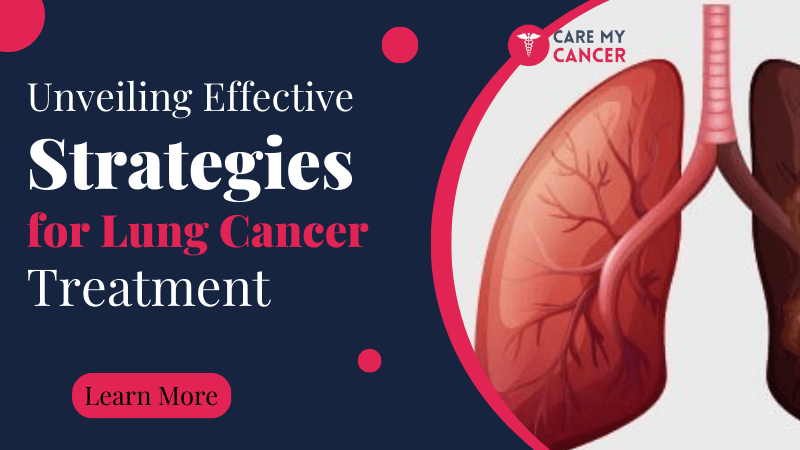Introduction
Lung cancer, a formidable adversary in the realm of oncology, poses significant challenges to patients and healthcare providers alike. Understanding its nuances and exploring effective treatment options are paramount for improving patient outcomes and enhancing quality of life. In this guide, we embark on an enlightening journey through the landscape of lung cancer treatment, unraveling strategies, breakthroughs, and hope for those affected by this disease.
Understanding Lung Cancer: A Primer
Demystifying Lung Cancer Types
Lung cancer manifests in various forms, each with distinct characteristics and treatment implications. From non-small cell lung cancer (NSCLC) to small cell lung cancer (SCLC), comprehending the differences is pivotal in tailoring therapeutic approaches.
Exploring Risk Factors and Prevention Strategies
Delving into the intricate web of risk factors associated with lung cancer sheds light on preventive measures. From smoking cessation to environmental pollutants, mitigating risk factors plays a pivotal role in reducing the incidence of this disease.
Diagnostic Modalities: Pioneering Precision
Revolutionizing Early Detection
Early diagnosis remains a cornerstone in the battle against lung cancer. Innovations in imaging modalities, such as low-dose computed tomography (LDCT), empower clinicians to detect malignancies at their nascent stages, offering patients a fighting chance for successful treatment.
Biopsy Techniques and Molecular Profiling
The advent of precision medicine has revolutionized cancer care, particularly in lung cancer. Biopsy techniques, coupled with molecular profiling, enable oncologists to unravel the genetic underpinnings of tumors, paving the way for personalized treatment strategies.
Multimodal Treatment Approaches: Navigating Complexity
Surgical Interventions: Cutting-edge Solutions
For operable lung cancers, surgical resection remains a cornerstone in curative treatment. From lobectomy to segmentectomy, embracing advancements in surgical techniques enhances the efficacy of tumor removal while minimizing morbidity.
Radiation Therapy: Targeted Precision
In the era of precision oncology, radiation therapy continues to evolve, offering targeted solutions for localized disease. From stereotactic body radiation therapy (SBRT) to intensity-modulated radiation therapy (IMRT), harnessing the power of radiation delivers optimal tumor control with minimal collateral damage.
Chemotherapy and Immunotherapy: Unleashing the Immune System
The advent of immunotherapy has heralded a new dawn in lung cancer treatment, empowering the immune system to combat malignancies with unprecedented efficacy. Combined with traditional chemotherapy, immunotherapy regimens revolutionize the landscape of advanced-stage lung cancer management.
Supportive Care: Nurturing Well-being
Palliative Care: Enhancing Quality of Life
Amidst the rigors of cancer treatment, palliative care emerges as a beacon of hope, focusing on symptom management and psychosocial support. Integrating palliative care early in the treatment trajectory fosters holistic well-being and dignity for patients facing advanced-stage disease.
Nutritional Support and Rehabilitation
Nutritional interventions play a pivotal role in optimizing treatment outcomes and mitigating treatment-related toxicities. From dietary modifications to rehabilitation programs, nurturing physical strength and resilience are paramount in the journey towards recovery.
Complementary and Alternative Medicine (CAM): Harnessing Holistic Modalities
In conjunction with conventional treatments, complementary and alternative medicine (CAM) modalities offer a multifaceted approach to holistic healing. From acupuncture to meditation, integrating CAM into the treatment paradigm addresses the physical, emotional, and spiritual dimensions of wellness.
Clinical Trials: Pioneering Innovations
The realm of lung cancer treatment is characterized by continuous innovation, with clinical trials serving as the vanguard of progress. Participating in clinical trials not only expands treatment options but also contributes to the collective knowledge base, driving forward the frontier of cancer research.
FAQs (Frequently Asked Questions)
What are the most common symptoms of lung cancer?
Persistent cough, chest pain, unexplained weight loss, and shortness of breath are among the hallmark symptoms of lung cancer.
How is lung cancer staged?
Lung cancer staging involves assessing the extent of tumor spread, lymph node involvement, and metastasis, typically classified from stage I to IV.
What are the main treatment options for lung cancer?
Treatment modalities for lung cancer encompass surgery, radiation therapy, chemotherapy, immunotherapy, targeted therapy, and supportive care interventions.
Can lung cancer be prevented?
While not all cases of lung cancer are preventable, avoiding tobacco smoke, minimizing exposure to environmental carcinogens, and maintaining a healthy lifestyle can reduce the risk.
What is the prognosis for lung cancer?
Prognosis for lung cancer varies depending on factors such as cancer stage, histology, and overall health status of the patient, with early detection and multimodal treatment approaches associated with improved outcomes.
Are there alternative treatments for lung cancer?
Complementary and alternative medicine (CAM) modalities, such as herbal supplements, acupuncture, and mind-body therapies, may complement conventional treatments, although their efficacy varies and should be discussed with healthcare providers.
Conclusion
Navigating the labyrinth of lung cancer treatment necessitates a multifaceted approach, integrating innovation, compassion, and resilience. By embracing personalized treatment strategies, fostering holistic well-being, and advancing the frontiers of research, we forge a path towards enhanced outcomes and renewed hope in the battle against lung cancer.

